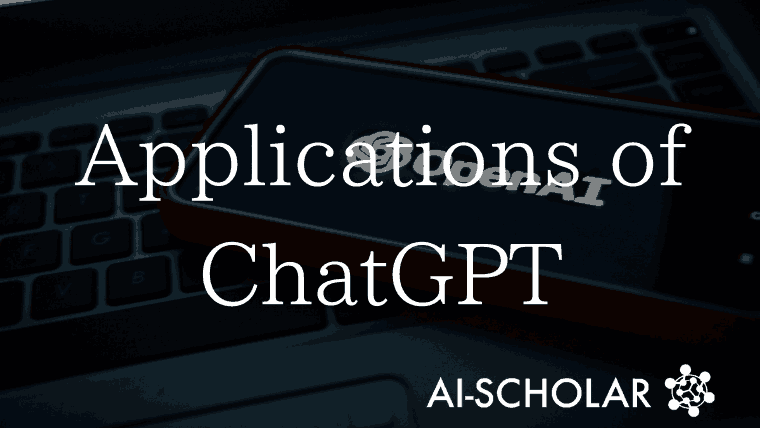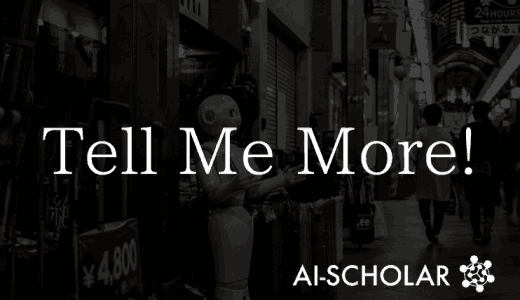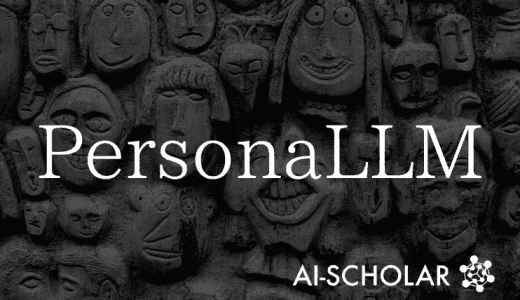
What Impact Will ChatGPT Have On Our Lives, Business And Industry, And Education?
3 main points
✔️ A survey of the uses and risks of ChatGPT, which has revolutionized natural language processing. In particular, the focus is on its impact in the areas of business and education.
✔️ While ChatGPT saves time and money, it can produce misleading results and bias, raise ethical issues, and be misused.
✔️Guidelines for the use of generative AI are being considered in various countries, including Japan.
ChatGPT: Applications, Opportunities, and Threats
written by Aram Bahrini, Mohammadsadra Khamoshifar, Hossein Abbasimehr, Robert J. Riggs, Maryam Esmaeili, Rastin Mastali Majdabadkohne, Morteza Pasehvar
(Submitted on 14 Apr 2023)
Subjects: Computers and Society (cs.CY); Computation and Language (cs.CL)
Comments: Preprint accepted in IEEE Systems and Information Engineering Design Symposium (SIEDS) 2023
code:
The images used in this article are from the paper, the introductory slides, or were created based on them.
summary
Developed by OpenAI in 2022, ChatGPT has become a social phenomenon.ChatGPT is a large-scale language model, capable of handling a wide range of text generation tasks. The original GPT stands for "Generative Pre-trained Transformer" and is a generic, large-scale language model for natural language processing (NLP) tasks. These models are trained using large amounts of textual data available on the web and can generate any textual information. It is said that today's large-scale language models have trained about 1 trillion characters, or the equivalent of 10 million books, and OpenAI has been researching and developing these models starting with GPT-1, then GPT-2, GPT-3, GPT-3,5 and now GPT-4. These models have been trained sequentially and improvements have been made based on the results of one previous model.
ChatGPT is part of this GPT model and is specifically designed for interactive text generation. It can interact naturally with humans and generate appropriate responses to user input text. This allows ChatGPT to be used for a variety of applications, including user support, education, and entertainment. While it has great potential to change the way society works, it is also considered to have commensurate risks and has become a major social issue.
The paper presented here scrutinizes the existing literature on ChatGPT and discusses 10 areas: business and industry, education, science and technology, government and politics, healthcare and medicine, infrastructure, environment and sustainability, communication, arts and culture, and lifestyle and leisure, The applications, possibilities, and risks of ChatGPT are summarized. This article introduces "Business and Industry" and "Education," which are considered particularly important in the paper.
Applications and Risks in Business and Industry
In the business and industry domain, a very wide range of applications are possible, including operations and administration, supply chain management, business analytics, transportation, human resources, marketing, e-commerce, accounting, finance, retail, real estate, and insurance. For example, looking at supply chain management, ChatGPT can be used for the following tasks
- Demand forecasting: Analyzes historical data and market trends to forecast demand for products and services, allowing for optimized inventory management and production planning.
- Inventory optimization: Analyze inventory data to optimize the number of items in stock and reduce out-of-stocks. Can suggest ways to reduce the time required to fulfill orders and reduce costs.
- Supplier Selection and Evaluation: Identify and evaluate potential suppliers based on factors such as quality, price, lead time, and reliability.
- Logistics optimization: route optimization, carrier selection, and other logistics tasks can be assisted to ensure fast and efficient delivery of goods.
- Risk Management: Analyze supply chain data to identify potential risks and provide recommendations to mitigate them, such as identifying alternative suppliers in the event of supply chain disruptions.
These are just a few examples of how ChatGPT can support supply chain management tasks. It claims to have the ability to quickly process and analyze large amounts of data, thereby enabling companies and industries to make better decisions faster and improve their operations. As a result, they claim, they can remain highly competitive in a fast-changing business environment and reap a variety of benefits.
On the other hand, with anything new comes risk: the accuracy of AI models depends on the input data, and ChatGPT is no exception, with risks related to data. The report states that concerns include reliance on available, high-quality data, unreliable results, biased results, hallucinations, lack of transparency, ethics and data privacy concerns, and cybersecurity risks. For example, when it comes to supply chain management, as mentioned earlier, ChatGPT does not pose a direct threat, but there are some things that companies should be aware of.
- Over-reliance on technology: if supply chains rely too heavily on ChatGPT forecasts, they risk losing human judgment and decision-making capacity; if ChatGPT results are inaccurate or biased, supply chains may be adversely affected.
- Cybersecurity Risk: In order for ChatGPT to function, it requires large amounts of data, which may be vulnerable to cyber attacks. Hackers could use ChatGPT to steal information and manipulate supply chain data.
- Data Bias: Because accurate forecasts from ChatGPT are critical to the success of the supply chain, it is necessary to scrutinize the data used to train ChatGPT to ensure that it is not biased.
- Lack of transparency: it is difficult to understand the basis for forecasts by ChatGPT.
- Ethical concerns: concerns about how ChatGPT may affect work, privacy, etc. The potential disadvantages that the use of ChatGPT may have on those involved need to be carefully considered, and steps need to be taken to mitigate them.
To mitigate these risks, companies need to maintain a balance between human judgment and technology, take strong cybersecurity measures to protect data from potential attacks, have appropriate data governance policies, use experts to analyze results, and carefully evaluation, among other things.
Uses and Risks in "Education"
In the education field, the report suggests that ChatGPT could be an important tool for providing effective and equitable learning for each individual, with a wide range of possible applications such as personalized curriculum and questions, appropriate feedback, and increased learner engagement. For example, with regard to instructional and writing support, ChatGPT could support the following tasks.
- Educational Support: Can create teaching materials, create questions to support learning as you progress, evaluate responses, and provide appropriate feedback. Can answer general questions, help students understand complex concepts, and provide sample examples in programming languages such as R/Python/Java.
- Writing assistance: can provide feedback on sentence structure, grammar, vocabulary, punctuation, citation, and plagiarism to improve writing skills. It can also suggest ways to organize and brainstorm ideas, make arguments more persuasive, provide examples of writing styles, and suggest ways to shorten or lengthen sentences.
It states that the use of ChatGPT in education, especially for children, must be done responsibly because it has a direct and significant impact on the learning experience, and therefore requires continuous and careful research and observation. It also states that the introduction of AI into education may pose ethical and social threats. The following are some of the risks to ChatGPT education.
- Over-reliance on technology reduces creativity and critical thinking: Over-reliance on ChatGPT by researchers, teachers, and students can lead to reduced creativity and critical thinking skills and a lack of diversity in research methods. Students may also be less motivated to learn if they feel that ChatGPT is doing the work for them.
- Inaccurate or biased information: ChatGPT responses are not always accurate and may unintentionally reinforce biases and stereotypes in training data.
- Lack of human interaction and reduced motivation for education: while ChatGPT can provide support and feedback, it cannot replace the value of human interaction and personalized feedback with teachers and mentors. This is essential for students' social and emotional development.
- Technical Issues: As with any technology, ChatGPT may face technical issues such as bugs, server downtime, and compatibility issues with certain software and data formats, which can disrupt and hinder education.
- Ethical Concerns: There are ethical concerns with the use of ChatGPT in academic research, including privacy concerns and issues related to data ownership and management and consent. There is also the potential for students and researchers to misuse ChatGPT by copying and pasting information without proper citation.
- Security concerns: storing sensitive data such as student grades, test scores, and personal information in ChatGPT may involve security risks and increase the potential for data leakage.
To mitigate these risks, educators should emphasize critical thinking to prevent loss of creativity and motivation, make students aware of the possibility of inaccurate or biased information, promote cooperative and peer learning to address lack of human interaction, establish clear guidelines and policies for the use of AI technology to address ethical and security concerns to set clear guidelines and policies for the use of AI technology, and prepare a backup plan for possible technical problems that may arise.
summary
This paper summarizes the social issue of ChatGPT, its impact and risks, focusing on the areas of business and industry and education.While ChatGPT saves time and money and allows people to do things more efficiently, it also creates misunderstandings and biases, raises ethical issues, and can be and misuse, it is important to take steps to mitigate these risks. For this reason, some countries have taken cautious measures, such as prohibiting the use of ChatGPT until guidelines for its use are established. In Japan, studies on ChatGPT and other generative AI are underway, and on June 26, 2023, the government's AI Strategy Council decided to formulate uniform guidelines by the end of this year to address the rapid evolution and spread of generative AI. Separately, on July 4, 2023, the Ministry of Education, Culture, Sports, Science and Technology (MEXT) also released " Tentative Guidelines for the Use of Generative AI in the Primary and Secondary Education Stage," a set of guidelines for the educational field.
In developing AI, developers must face the issues of what humanity is, what ethics are, and what prejudice and discrimination are, in order to directly learn from data. In addition, when considering the role of generative AI in the education of elementary, junior high, and high school students, it is necessary to confront the purpose of education, the abilities and qualities that should be equipped, and education itself, making this a very difficult discussion.
Further evolution of generative AI, including ChatGPT, is expected in the future. As this happens, guidelines will be developed and revised, and examples will be gathered. Ongoing medium- and long-term information gathering and study will be required to determine what impact generative AI will have on humans and society, and how we should respond to the results obtained.
Categories related to this article





![[JMMLU] Prompt Polit](https://aisholar.s3.ap-northeast-1.amazonaws.com/media/July2024/jmmlu-520x300.png)



